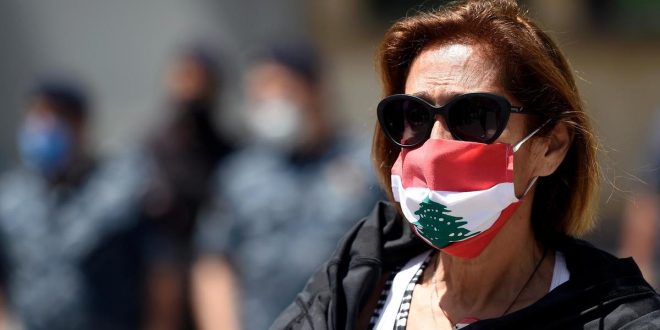Private
As the coronavirus cases record double and triple digits with an increase in untraceable cases, the Lebanese government is not ready to impose a full lockdown or to tighten restrictions yet.
Lebanon’s public health minister Dr. Hamad Hassan said Tuesday that the country which has so far managed to contain the virus, is sliding toward a critical stage with a new surge in infections after lockdown restrictions were lifted and the airport reopened on July 1st.
Lebanon has recorded 2,900 cases and 41 deaths so far, the latest being a 32-year-old front-line doctor in the southern city of Tyre. The physician died two weeks after contracting the virus and officials stated the late diagnosis is to blame. 150 medical staff have been infected since the appearance of the virus in the country and only few of them became severely sick.
New cases reached 170 in one day after recording an average of less than 20 a day in previous months, which raised concerns across the nation. Mr. Hassan warned that more than 20% of new cases are untraceable.
Untraceable cases are even more dangerous than traceable cases because people who have contracted Covid-19 and do not show any symptoms will think they are healthy and will not get tested. Therefore they could easily spread the virus to others without being aware of being sick.
“The danger of community spread is still possible because the country has opened up,” Hassan said in an interview with the Associated Press late Monday. “The reopening of the Beirut airport and the subsequent failure of Lebanese returning from abroad and their relatives to adhere to strict isolation measures caused a spike in infections”, he added.
“When they are untraceable and I can’t trace the clusters that I need to reach, then I start to worry that we are sliding into stage four,” he said. “We are still in the critical period between stage three to stage four.”
Stage four means the country will return to strict lockdown measures but Mr. Hassan stated it is “still too early” to consider that option.
Lebanon has been going through its worst economic crisis for several months now, and telling people to stay home again to contain the virus might be a little too much to ask from citizens who are surviving on a day-to-day basis. Prime Minister Hassan Diab said “people’s needs to live must be considered”, a dilemma facing all countries battling the economic crisis caused by Covid-19. Poverty and unemployment rates in the country are now respectively at 45% and over 30%, which is extremely alarming.
Mr. Diab said his approach is to support and strengthen the public health sector, which had been shattered during the country’s civil war that ended in 1990. Lebanon heavily relies on private hospitals, but public facilities have been at the forefront of efforts to combat the coronavirus. He also added that he plans to use a World Bank loan to equip public hospitals.
Despite death rate and levels of hospital bed occupancy being relatively low at the moment, Lebanon could be facing a disaster if the coronavirus cases keep scoring high numbers in the upcoming weeks.
Directorate of Lebanese Studies and Publications
Romy Harfouche
 Lebanese Ministry of Information
Lebanese Ministry of Information



